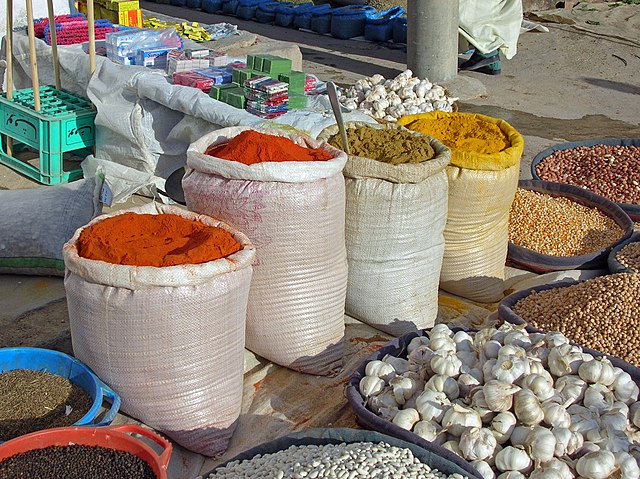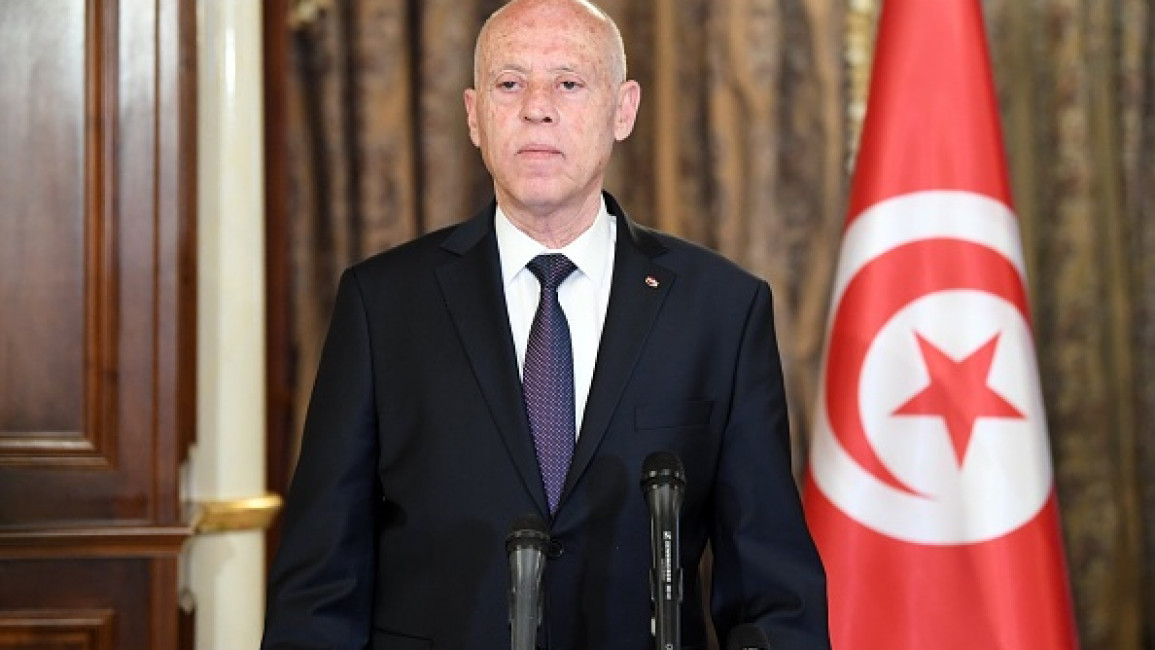Amnesty: New Law Threatens Free Expression in Tunisia
Reporting analysis or news which has any impact on Tunisia’s economy could result in a jail sentence under a new law Tunisia has just passed. The bill will have a significant effect on freedom of expression in the African country that kicked off the Arab spring just over a decade ago, Amnesty International said in a statement.
 The law comes amidst a major food crisis in the same region that was once the bread basket of ancient Rome. Staples like grain and sugar are becoming increasingly scarce, especially with the war in Ukraine disrupting one of the world's other major grain producers. (Photo: Bernard Gagnon, Wikimedia, License)“Decree-Law 2022-14, which went into effect on 21 March 2022, contains vaguely worded provisions that could lead to prison terms of between ten years and life … for public debate of the economy,” Amnesty said.
The law comes amidst a major food crisis in the same region that was once the bread basket of ancient Rome. Staples like grain and sugar are becoming increasingly scarce, especially with the war in Ukraine disrupting one of the world's other major grain producers. (Photo: Bernard Gagnon, Wikimedia, License)“Decree-Law 2022-14, which went into effect on 21 March 2022, contains vaguely worded provisions that could lead to prison terms of between ten years and life … for public debate of the economy,” Amnesty said.
The decree outlaws the spread of “false or incorrect news or information” that stops consumers from buying, and therefore contributes to price rises.
“While acts to influence markets through fraudulent means are legitimate grounds for concern, sweeping laws such as decree-Law 2022-14 open the door to unfair and abusive prosecutions,” Amnesty said.
The law comes amidst a major food crisis in the same region that was once the bread basket of ancient Rome. Staples like grain and sugar are becoming increasingly scarce, especially with the war in Ukraine disrupting one of the world's other major grain producers.
“Tunisia is already suffering a long-standing economic and financial crisis.” said Amna Guellali, Deputy Regional Director for the Middle East and North Africa at Amnesty International. “It is more important than ever that people in the country be free to discuss and debate the issues that affect them, including food security and goods supplies, without fear of prosecutions.”
“Instead of seeking to criminalize those who express themselves freely about good supplies, the authorities should step up their efforts to ensure that they disseminate reliable, accessible, and trustworthy information as the best way to counter misinformation and protect human rights,” she added.
More often than not, instead of protecting the public, such opacity only allows corruption and organized crime to fester. Shortages and scarcity already makes an environment particularly welcoming for criminality to exploit.
Decree-Law 2022-14 risks creating a chilling effect that dissuades people from openly discussing food supplies and food security for fear of reprisal, said Guellali.
Meanwhile, parties from across Tunisia's political spectrum, including the powerful UGTT labour union urge Saied to hold quick elections, citing the country's constitution.
The New Arab Staff & Agencies
01 April, 2022

Tunisia's President Kais Saied, who said he will not hold elections any time soon, dismissed parliament on Wednesday [Getty]
Tunisia's president said late on Thursday he would not hold elections within three months after he dissolved parliament this week, the latest step in a march to one-man rule after brushing aside most of the democratic constitution.
Parties from across Tunisia's political spectrum and the powerful labour union have cited the constitution to demand that the president hold quick elections after announcing on Wednesday that he was dissolving parliament.
"I don't know how they get this interpretation," Saied said in the video of a meeting with Prime Minister Najla Bouden that was posted at midnight on the presidency's Facebook page.
Later on Thursday, US State Department spokesman Ned Price said Washington was deeply concerned at Saied's dissolution of parliament and reports that he would prosecute lawmakers who joined a session in defiance of the president on Wednesday.
"A swift return to constitutional government, including an elected parliament, is critical to democratic governance," Price said in an online video.
The United States has been a major donor to Tunisia since its 2011 revolution that introduced democracy and Saied's government is seeking international funding to avert a rapidly looming crisis in public finances.
Tunisia's political crisis escalated sharply on Wednesday when more than half the members of the parliament, which Saied suspended in July in a move his foes call a coup, held an online session to revoke his decrees.
The UGTT labour union, the most powerful political body in the country with more than a million members, had previously urged Saied to dissolve parliament and quickly call new elections.
The Islamist Ennahda, which was the biggest party in parliament and is the only one with a strong national organisation, has rejected Saied's dissolution of the chamber but said he should still hold elections within three months.
RELATED
Tunisia: Saied declares war on speculators amid wheat crisis
MENA
Basma El Atti
The Free Constitutional Party, whose leader, Abir Moussi, is a supporter of the late autocratic president, Zine El Abidine Ben Ali, and a bitter foe of Ennahda, applauded Saied's move but also called for quick elections.
Moussi, whose party is ahead in opinion polls, said that according to the constitution Saied should call elections within three months.
Saied has previously said he will form a committee to rewrite the constitution, put it to a referendum in July and then hold parliamentary elections in December.
Ennahda head Rached Ghannouchi told Reuters on Thursday the party would boycott any referendum he called to restructure the political system unilaterally.
(Reuters)
No comments:
Post a Comment